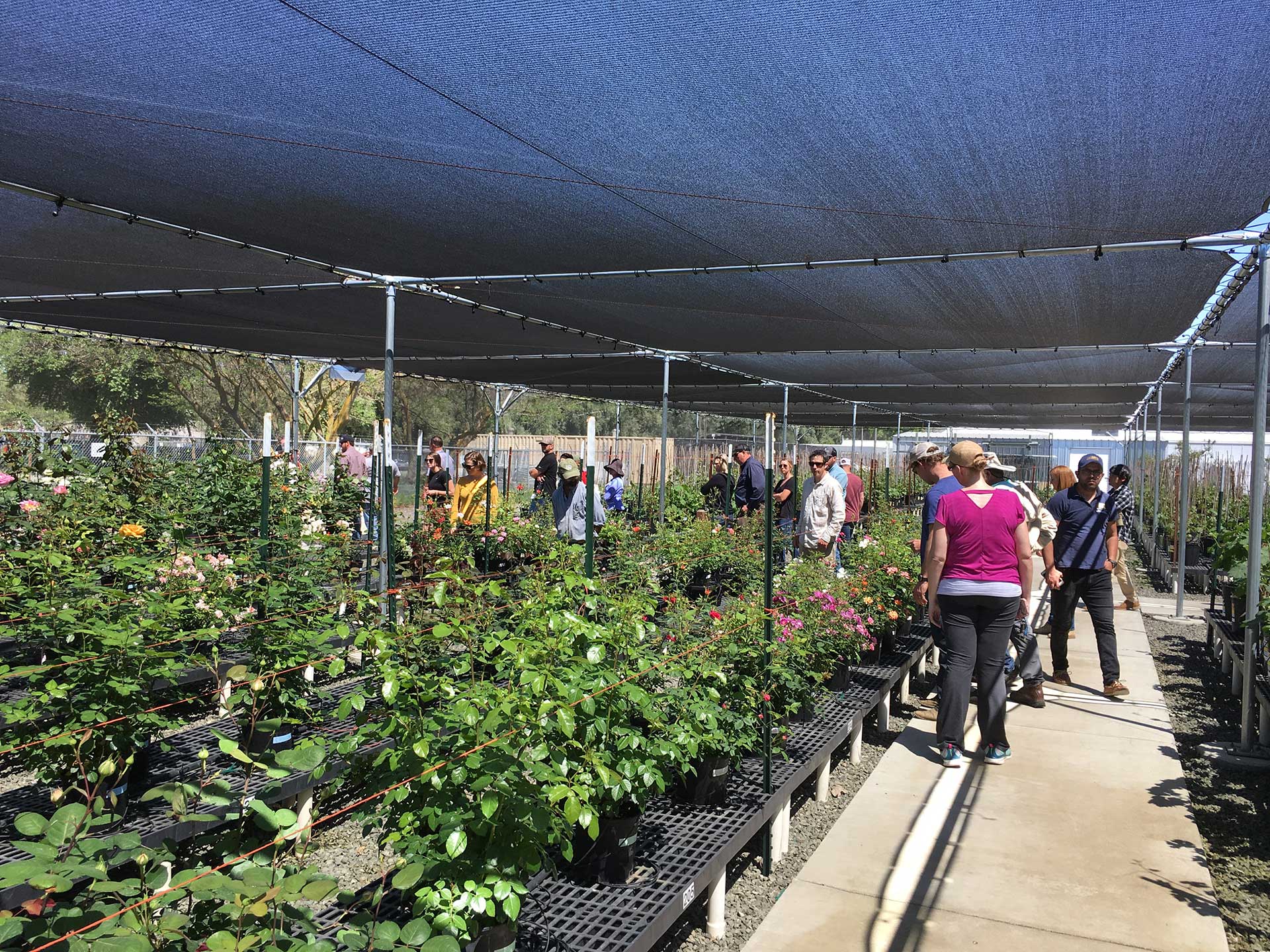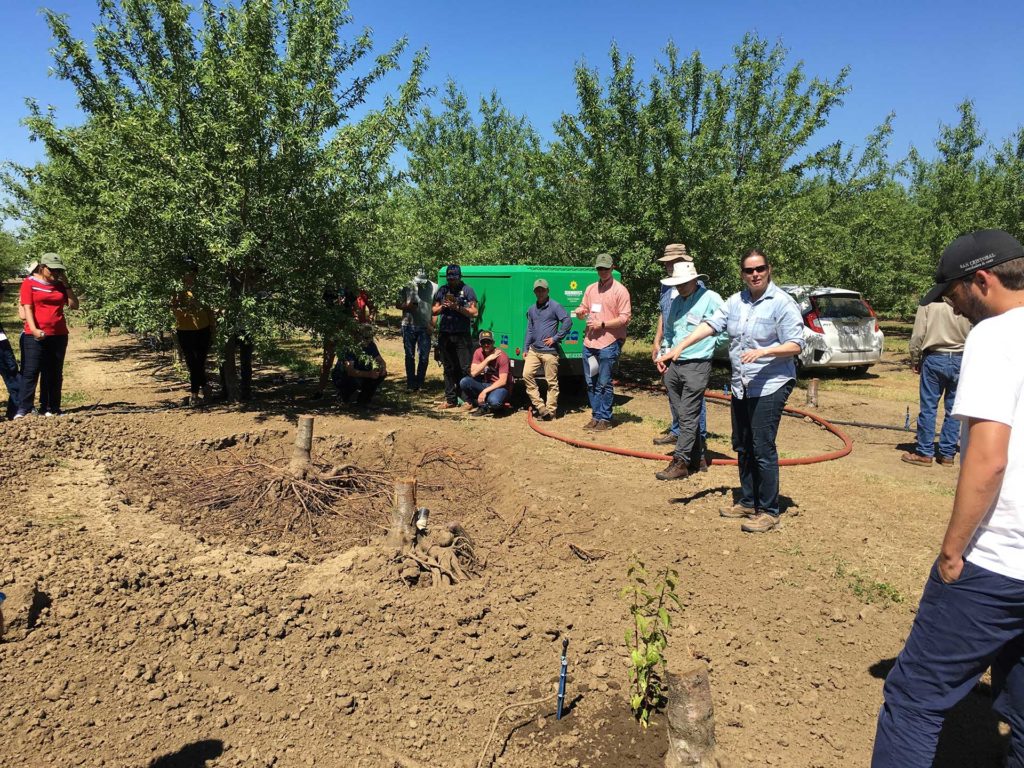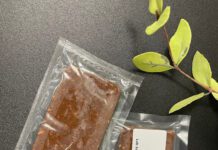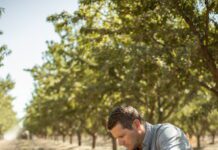
Farming is often a multigenerational legacy, but what about those who are just starting out and are brand new to the farming game?
University of California (UC), Davis has you covered. From March 23-April 2, 2020, UC Davis will be hosting a short course focusing on the tree growing basics in an agricultural business setting.
Who Should Attend
The course is open to anyone interested in learning how to grow and care for a related orchard, along with various aspects it entails. “It’s designed to give a thorough introduction to people who are brand new to farming,” says Kevin Taniguchi, manager of the Fruit and Nut Research and Information Center at UC Davis, “whether they’ve just bought a small plot, are taking over a farm, transitioning from field crops to tree crops, or are considering work as a farm manager.”
The course typically sells out every year and hosts many international attendees from places like Australia, Greece, Turkey, Chile, and other locales that feature a Mediterranean climate. However, this year’s is geared towards California growers. It’s a great place to network with other growers, as well as meet other people who can offer some insight into caring for an orchard.

What You’ll Learn
If you don’t know every step between buying a piece of land and getting your product into the hands of the people who can take it to market, don’t worry. You’ll learn about it all. There are entire days dedicated to subjects like planting, pathology, and pest management. The course will also cover things like buying your land and soil analysis, setting up your orchard, pressure bombs and tree stresses, water usage and irrigation, root management, flower and leafing, basic biology, pruning, harvest, and more.
“It’s basically everything within the first three years up until harvest,” says Taniguchi.
While the course briefly touches upon citrus and avocados, the primary focus is on tree nuts, such as almonds, walnuts, and pistachios, along with stone fruit, like nectarines.
Because this is a program hosted by the Fruit and Nut Center, there will be a host of experts available to attendees, including farm advisors, UC Davis staff, and expert pomologist researchers from the College of Agricultural and Environmental Sciences.
Course Format
This course is an intensive two-week program. Week One begins in a lecture style for the first part of the day, then tours attendees through working farms and fields around the Davis area for the second half of the day. Week One is from 8 am-5 pm, Monday-Friday.
Week Two consists of a field trip farther down the California Central Valley with a final destination in Selma, California. During this trip, students will visit breeders and packers, and see real, in-action facilities and their operations. Transportation is provided. Those who are local to the area in Week Two are welcome to provide their own transportation and meet the rest of the class on location. Week Two is from 8 am-5 pm, Monday-Thursday.
There is also the option of participating only in Week One, with the possibility of adding Week Two after, pending availability.
The Ultimate Goal
California has an extensive community of growers, farmers, and other agriculture experts and researchers to complement one of the most versatile growing regions in the country. All these elements foster an environment that supports one all-encompassing goal: to create a better California grower.
“We want to help create the most knowledgeable, technologically advanced, and up-to-date growers right here in California,” says Taniguchi.
Part of achieving that goal is encouraging new growers to interact with experienced farmers. It can often seem intimidating to call your farm advisor, especially for new growers who may have a lot of questions. There are many things that people do in order to support a healthy orchard, and many times no one else really knows about it, even though the information could benefit a lot of other growers.
This is another reason UC Davis is building an environment where people can share information, trade business cards, make friends, and connect with one another.
Registration and Cost
Registration is open until February 1, 2020, and fairly easy to do. The link is available on the Fruit and Nut Research and Information Center’s website at fruitandnuts.ucdavis.edu.
The cost for Week One only is $1,975. The cost for the entire two-week program is $3,190. Payment is required in full at time of registration.
There is the option to enroll for the first week only, and then decide to add the second week. However, Week Two of the program is capped at 30 students, and fills up much faster.
For more information regarding this course, contact the UC Davis Fruit and Nut Research and Information Center at fruitandnuts@ucdavis.edu or 530-754-9708.










